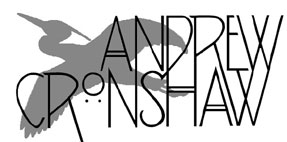
- Andrew Cronshaw website -
- Andrew Cronshaw MySpace -
- Cloud Valley Music website -
- Andrew Cronshaw website -
- Andrew Cronshaw MySpace -
- Back to Reviews Introduction page -
Written in
fRoots
issue 269, 2005
SWÅP
Du Da
NorthSide NSD6085 (2005)
OLA BÄCKSTRÖM
Boggdansen
Giga GCD-68 (2005)
KALLE ALMLÖF & JONNY SOLING
Öst Och Väst
Giga GCD-74 (2005)
Perhaps it’s because of the other involvements of its members, or perhaps
because not enough people have seen it live, but Swåp doesn’t seem to have had
the acclaim it deserves. This is a great band. The parts – accordionist Karen
Tweed, guitarist Ian Carr and Dalarna fiddlers Ola Bäckström and Carina
Normansson – together form a beautifully-matched whole that’s different from any
of the work they do separately.
This new album, studio-recorded but full of the
energy, wit and strong tunes of their live performances, expands on an aspect
only hinted at in the past – the excellence of Carina Normansson as a vocalist.
The five vocal items here would identify her as
in the Swedish top rank as a singer even if she weren’t already up there as a
fiddler. After the opening instrumental onslaught of Bäckström’s Dalpillen
her spirited vocal in the dance-game song Fattig Änka even draws the rest
of the band into singing. Then into a Tweed tune and two Carr compositions, a
jig and a polska that, like all the band’s material, manage to combine
fascinating melodic complexity with a mighty, infectious swing.
The waltz-tempo ring dance song Midsommarvisa
leads into another series of memorable, multifaceted tunes variously by
Normansson, Bäckström and Carr (another of his house-envy tunes). In the
traditional ballad Så Rider Jag Meg, Normansson’s rich, assured voice,
light on the surface but with a deep resonance, is arranged with dark shifting
strings, grinding accordion and Carr’s guitar moving between silvery picking and
power chords of his usual mystifying but acutely effective construction. For the
following vocally intricate fast Brudpolska Från Orsa she wrote the
words, as she did to Bäckström’s melody for the ironic prescription to Se På
TV (Watch TV), and the album closes with one of her tunes, written for Falu
Spelmanslag, the Falun fiddlers’ club that she leads.
In Du Da four musicians contribute equally
and with intuitive communication in the exquisite balance that makes a band
special, and after the UK-release delays of its (recommended) predecessor
Mosquito Hunter it shows signs of being the turning point at which this
band’s true stature is generally realised.
Ola Bäckström made a strong album for Giga back
in 1994, accompanied by other musicians including Normansson and percussionist
Björn Tollin, his colleague in the musicians and dancers group Boot. This time,
though, in the core tradition of Swedish fiddling he’s entirely solo, in
twenty-three tracks of tunes mainly from his home region of Ore: polskas, some
marches, a gånglåt and a waltz. He’s a luminously articulate fiddler, with a
light, airy tone, and his playing always makes sense and opens up and refreshes
the tunes.
In his youth, bewitched by the music he heard at
the Bingsjö fiddlers’ gathering, Ola went on a course at the folk high school in
Malung, taught by Jonny Soling. Soling, from Orsa in east Dalarna, is a fiddler
who has influenced many, as is Kalle Almlöf from Malung, which is in west
Dalarna.
Both Soling and Almlöf were students of Ole
Hjorth in 1976 at the first fiddle course at Stockholm’s Royal College of Music,
over 25 years the two have taught over 5000 fiddlers at Malung, in week-long
summer courses or for longer periods, evolving a folk music teaching method that
works so well that the courses are doubly over-subscribed. They have performed
together in various contexts for over thirty years, and were involved during the
1970s in the early days of the Swedish folk music boom, playing in some of the
first adventures with organist Merit Hemmingson and with Ulf Gruvberg and Carin
Kjellman of Folk Och Rackare.
The county of Dalarna isn’t very big, but in the
old days travel was less easy than it is now, and the distinct styles and
repertoires that evolved have persisted. Their album of duets draws tunes from
both sides of Dalarna; mainly of course polskas but also gånglåts, waltzes, a
march and an east-west fusion wedding tune they wrote between them. The playing
quality goes without saying, and the two fiddles blend with complete mutual
understanding.
© 2005
Andrew Cronshaw
You're welcome to quote from reviews on this site, but please credit the writer
and fRoots.
Links:
fRoots - The feature and
review-packed UK-based monthly world roots music magazine in which these reviews
were published, and by whose permission they're reproduced here.
It's not practical to give, and keep up to date,
current contact details and sales sources for all the artists and labels in
these reviews, but try Googling for them, and where possible buy direct from the
artists.
CDRoots.com in the USA, run by
Cliff Furnald, is a reliable and independent online retail source, with reviews,
of many of the CDs in these reviews; it's connected to his excellent online magazine
Rootsworld.com
For more reviews click on the regions below
NORDIC
BALTIC
IBERIA (& islands)
CENTRAL & EASTERN EUROPE, & CAUCASUS
OTHER EUROPEAN AMERICAS OTHER, AND WORLD IN GENERAL
- Back to Reviews Introduction page -